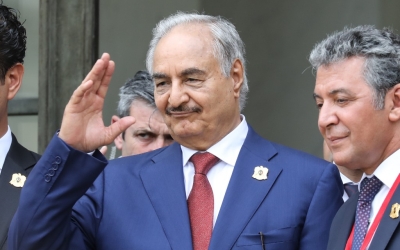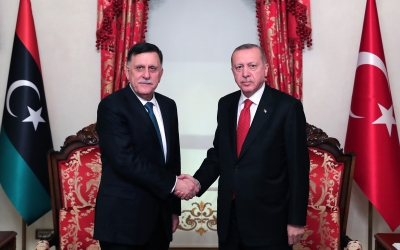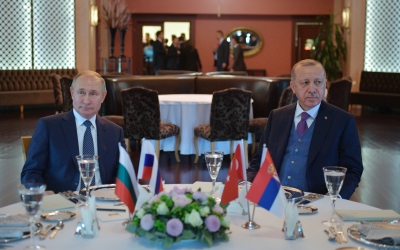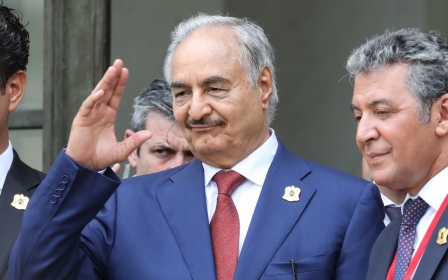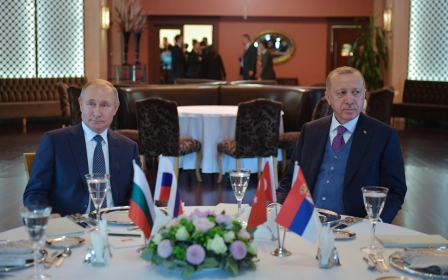Haftar forces block Libya oil exports, raising stakes for Sunday's Berlin peace summit
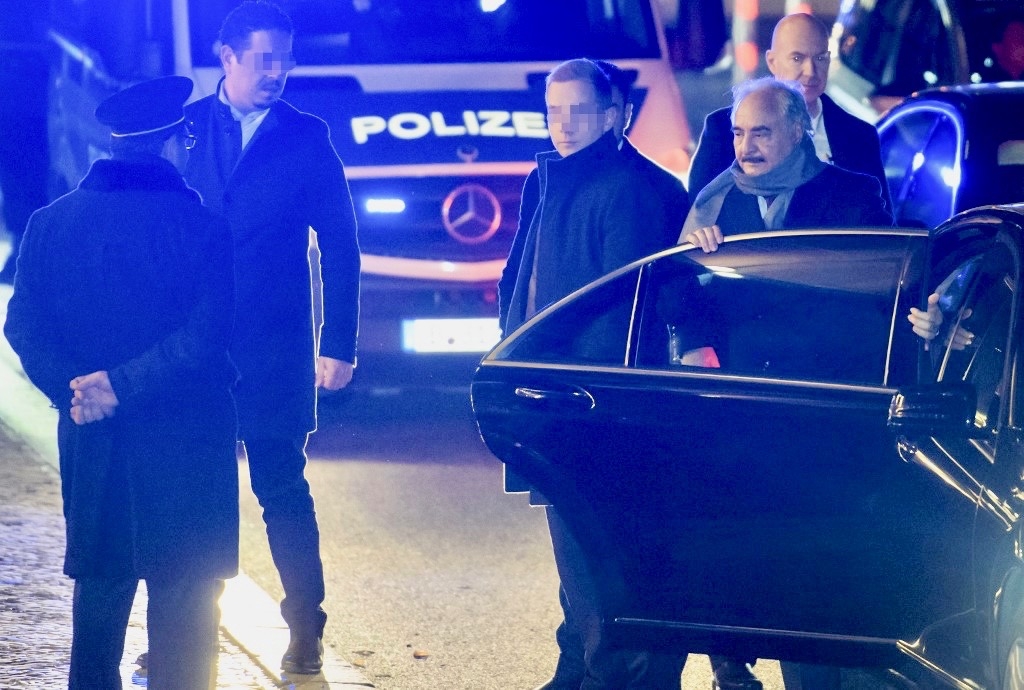
Forces loyal to eastern Libya military leader Khalifa Haftar blocked oil exports from the war-ravaged country's main ports on Saturday, raising the stakes on the eve of an international summit aimed at bringing peace to the North African nation.
The move to cripple the country's main income source was a protest against Turkey's decision to send troops to shore up Haftar's rival, the head of Tripoli's UN-recognised government, Fayez al-Sarraj.
It comes ahead of Sunday's conference in Berlin that will see the United Nations try to extract a pledge from world leaders to stop meddling in the Libyan conflict - be it through supplying troops, weapons or financing.
"All foreign interference can provide some aspirin effect in the short term, but Libya needs all foreign interference to stop. That's one of the objectives of this conference," UN Libya envoy Ghassan Salame told AFP in an interview.
He said on Saturday that he hoped but "could not predict" whether eastern oil ports would be reopened soon, Reuters reported.
Oil export terminals across eastern and central Libya were shut by tribesmen allied with Haftar. Diplomats see the closures as a power play aimed at ramping up pressure ahead of the peace conference.
The presidents of Russia, Turkey and France, as well as US Secretary of State Mike Pompeo, are to join the talks, held under the auspices of the UN.
Haftar and Sarraj are also expected, German Foreign Minister Heiko Maas confirmed on Saturday, ahead of the first gathering of such scale on the conflict since 2018.
After months of combat that has killed more than 2,000 people, a ceasefire took effect on 12 January, backed by both Ankara and Moscow, which is accused of supporting Haftar.
Still, Saturday's blockade raised fears over the conflict.
The disruption to oil exports is expected to more than halve the country's daily crude production to 500,000 barrels from 1.3 million barrels, translating to losses of $55m a day, Libya's National Oil Company (NOC) said.
The NOC declared force majeure on oil exports from the eastern ports of Brega, Ras Lanuf, Hariga, Zueitina and Es Sider, Reuters said.
Salame said the summit would likely discuss the closures to avoid them dragging on for weeks or months, like previous seizures of facilities. "If the thing is not solved between today and tomorrow, I expect the issue to be raised, yes," he told Reuters in Berlin.
"Our line at the UN is clear. Don't play with petrol because it's the livelihood of the Libyans," Salame had warned just hours before the blockade.
Oil revenues are booked via NOC in Tripoli and benefit mainly the internationally recognised Tripoli-based government, although some public servants in the east are also paid.
To get a bigger share, Haftar’s group has several times tried to sell oil on its own, only to be stopped by the United Nations as this violates an embargo, diplomats say.
Salame said a fair distribution of oil revenues needed to be part of any peace settlement in Libya.
Jalal Harchaoui, an expert at the Hague-based Institute Clingendael, said the petrol blockade was part of "the logic of blackmail".
"It can work, but there's also a risk that Washington will react badly," he said. Washington is deeply opposed to any move that might drive up crude prices, he added.
The oil-rich country has been torn by fighting between rival armed factions since a 2011 Nato-backed uprising killed former leader Muammar Gaddafi and toppled his government.
More recently, Haftar's forces launched an assault in April on Sarraj's troops around the capital Tripoli.
Although Sarraj's government is recognised by the UN, some powerful players have broken away to stand behind Haftar - turning a domestic conflict into what is essentially a proxy war with international powers jostling to secure their own interests.
Alarm grew internationally when Ankara sent troops in early January to help shore up Sarraj. Russia has denied accusations it provided weapons, financing and mercenaries to Haftar.
"We must end this vicious cycle of Libyans calling for the help of foreign powers. Their intervention deepens the divisions among the Libyans," said Salame.
The place of international players should be to "help Libyans develop themselves", he added.
The UN envoy said Sunday's meeting will also seek to "consolidate" the shaky ceasefire.
"Today we only have a truce. We want to transform it into a real ceasefire with monitoring, separation of rival camps and repositioning of heavy weapons" outside urban zones, he said.
Although the UN has tried several times to broker peace, talks have repeatedly collapsed.
On the eve of the Berlin talks, Turkish President Recep Tayyip Erdogan warned Europe to stand united behind Sarraj's government, as Tripoli's fall could leave "fertile ground" for groups like the Islamic State or al-Qaeda "to get back on their feet".
Erdogan also played up Europe's fears of a repeat of the 2015 refugee crisis in a commentary for the Politico news website, saying further unrest could prompt a new wave of migrants to head for the continent.
Accusing France in particular of siding with Haftar, Erdogan said leaving Libya to the commander would be a "mistake of historic proportions".
France has denied it is backing Haftar.
The European Union is watching the escalating strife on its doorstep with growing alarm, as it counts on Libya as a gatekeeper for deterring migrants from crossing the Mediterranean.
In a sign of the regional rivalries at play, Turkey's foreign minister on Friday accused Greece of "sabotaging" peace efforts by hosting Haftar in Athens earlier in the week.
Greece fiercely opposes a security and maritime deal signed between Tripoli and Turkey, and hosted Haftar after it was not invited to the Berlin summit.
Middle East Eye delivers independent and unrivalled coverage and analysis of the Middle East, North Africa and beyond. To learn more about republishing this content and the associated fees, please fill out this form. More about MEE can be found here.


